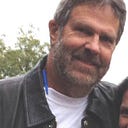Member-only story
An Imagined Trial for Crimes Against Native Americans
Its 2022 in an alternate reality, and in the US Supreme Court Chambers, Tecumseh, Davy Crockett, Sitting Bull, Andrew Jackson, Metacomet, Ruth Bader Ginsburg, Captain Jack, George Washington, Cochise, George Custer, Thurgood Marshall, Geronimo, and many, many others are ALL IN ATTENDANCE AT THIS VERY IMPORTANT TRIAL to decide reparations for Native Americans…how does this imagined trial end?
Everyone is there, all Colonials, indigenous Native Americans, Settlers of the Wild West, Algonquins, Sioux, Apache and the like, plus the Presidents, Generals, Justices, and Modern Progressives. What would happen at this gigantic trial for the ages, which admittedly might be too much for one article!
This epic trial is called to order by Chief Justice Thurgood Marshall (1967–1991), who has been recalled from the hereafter along with Ruth Bader Ginsburg (1993–2020), Roger Brooke Taney (1836–1864), Oliver Wendell Holmes (1902–1932), Earl Warren (1952–1969), Steven J. Field (1863–1897), Hugo L. Black (1937–1971), Joseph Story (1811–1845) and Sonia Sotomayor (2009-present), who if not the greatest justices of all time, at least represent the last 200 years of American history, more or less.
Arguing for just reparations for Native Americans, in the amount of the return of roughly 2/3 the continental United States…
